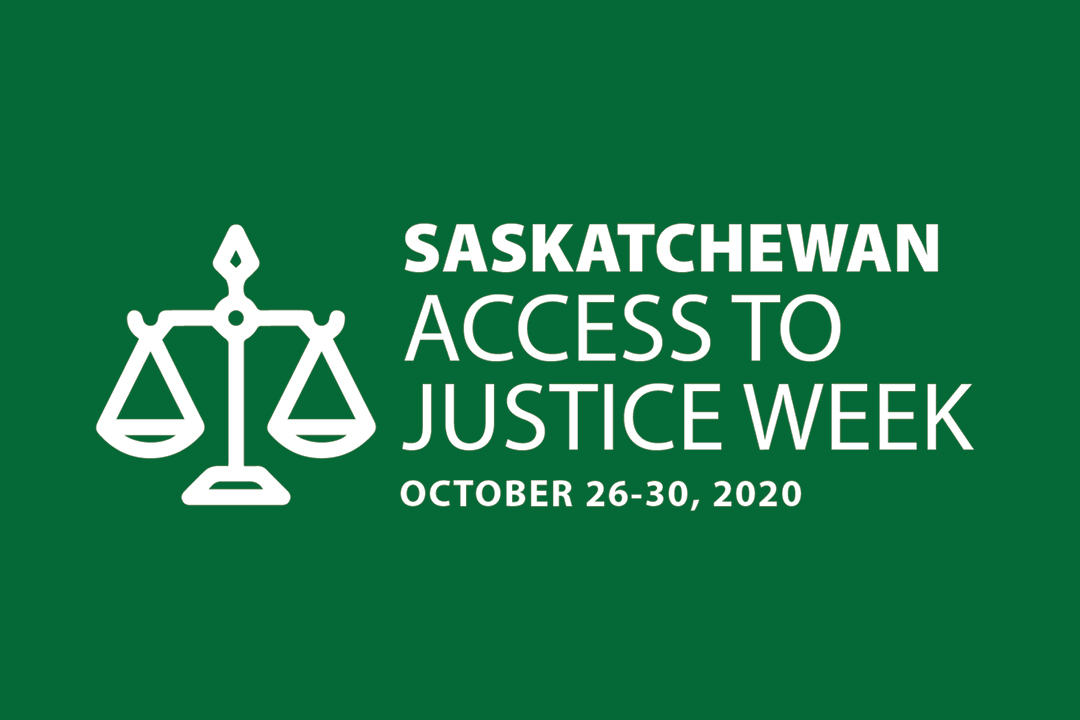
USask law group helps promote inclusive justice system across Canada
The University of Saskatchewan’s (USask) CREATE Justice centre is teaming up with other organizations across Canada to acknowledge Access to Justice Week (Oct. 26-31) by providing the tools needed to address justice system obstacles.

This year, organizers in Alberta, Saskatchewan, Ontario and Nova Scotia will highlight the work of justice and pro bono groups in each province, hosting a series of webinars to educate the public, lawyers and community members on how to improve access to justice in their own neighbourhoods.
“In any three-year period, nearly half of the people in Canada will have a problem serious enough to require legal assistance, yet in most provinces, someone working full-time at a minimum wage job earns too much to qualify for legal aid,” said Brea Lowenberger, director of CREATE Justice and organizer of Access to Justice Week in Saskatchewan.
According to Lowenberger, many Canadians face additional barriers, including a lack of fluency in English, physical distance from justice services and distrust of legal institutions.
“These deterrents have only become greater because of the COVID-19 pandemic,” she said. “We are pleased to be able to come together across the country for the first time this year and provide the tools that the legal profession and the public need to address these obstacles.”
The webinar series will begin on Monday, Oct. 26 with Unbundled Legal Services in Canada, a primer for lawyers interested in providing a cost-effective and efficient alternative for people looking for legal help. Presented by the Law Society of Saskatchewan, the webinar will feature John-Paul Boyd QC from Family Mediation Canada, unbundled legal coaching expert Sonali Sharma from Vancouver-based law firm Athena Law, and legal coach Lisa Eisen from Family Law: A La Carte in Toronto.
On Oct. 27, the University of Alberta Faculty of Law will host A Conversation About Access to Justice and Systemic Racism. This webinar will address the costs that society incurs when Canadians cannot access justice and how the justice system marginalizes racialized Canadians. Leading this discussion are Trevor Farrow, professor and former associate dean at Osgoode Hall Law School, and Joshua Sealy-Harrington, a doctoral candidate at Columbia Law School whose research focuses on law, identity and sexuality. It will be moderated by Barbara Billingsley, dean of the University of Alberta Faculty of Law.
The webinar series wraps up on Oct. 28 with Exploring Community Justice Help to Advance Community-based Access to Justice presented by the Law Society of Ontario. During this event, Julie Matthews and David Wiseman will share the results of their report proposing a new approach for enabling non-lawyer community workers to provide assistance for law-related problems, and will engage participants from across the country to explore how community justice help is available in other jurisdictions.
Full schedules of activities and more information about access to justice initiatives are available on the following provincial websites: Saskatchewan Access to Justice Week, Alberta Access to Justice Week and Ontario Access to Justice Week.
About the organizations:
Canada’s Access to Justice Week is a collaborative working group supported by CREATE Justice at the University of Saskatchewan College of Law, Law Society of Saskatchewan, CBA Alberta, the University of Alberta Faculty of Law, Law Society of Ontario, and the Access to Justice and Law Reform Institute of Nova Scotia.

